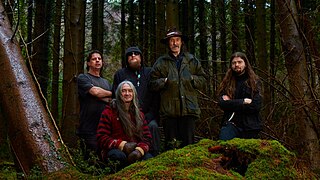
Hawkwind are an English rock band known as one of the earliest space rock groups. Since their formation in November 1969, Hawkwind have gone through many incarnations and have incorporated many different styles into their music, including hard rock, progressive rock and psychedelic rock. They are regarded as an influential proto-punk band. Their lyrics often cover themes of urban life and science fiction.

Space Ritual is a 1973 live double album recorded in 1972 by UK rock band Hawkwind. It is their fourth album since their debut, Hawkwind, in 1970. It reached number 9 in the UK Albums Chart and briefly dented the Billboard Hot 200, peaking at number 179.

"Urban Guerrilla" is a 1973 song by the UK rock group Hawkwind. It was originally released as a single in the UK on 27 July 1973 with "Brainbox Pollution" as the B side, reaching #39 on the UK singles chart before being withdrawn after 3 weeks. It is also on the remastered version of Doremi Fasol Latido.
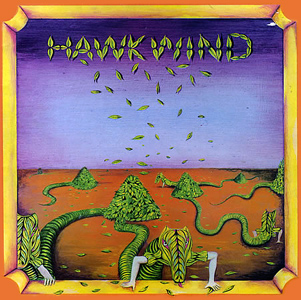
Hawkwind is the debut album by Hawkwind, released in 1970, originally on Liberty Records, later reissued on Sunset Records. This album is historic since it is one of the first space rock LPs.

Levitation is the tenth studio album by English rock group Hawkwind, released in 1980. It peaked at No. 21 on the UK Albums Chart.
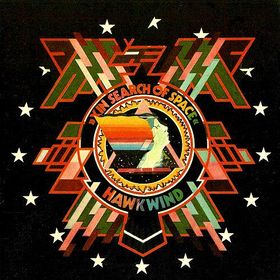
In Search of Space is the second studio album from Hawkwind, released in 1971. It reached No. 18 on the UK Albums Chart.
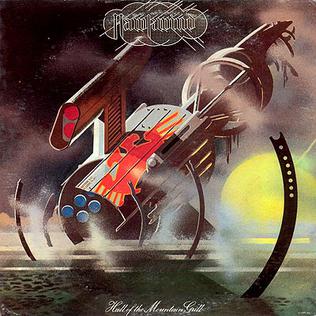
Hall of the Mountain Grill is the fourth studio album by space rock band Hawkwind, released in 1974. It is regarded by many critics as a career highlight.

On Parole is a studio recording released by British rock band Motörhead. It was intended as their first album and left unreleased at the time of its completion in 1976, and it was not released until over three years later, in November 1979, after the commercial success of Overkill and Bomber that same year. It was released without the band's permission, and they consequently distanced themselves from it. As a result, it was not considered an official release by the band at the time and they did not want it released, as they had moved on, since then, first to Chiswick Records and then to Bronze Records. The LP entered the UK charts on 8 December, where it peaked at No. 65.

Warrior on the Edge of Time is the fifth studio album by the English rock band Hawkwind. Many of the lyrics are by Michael Moorcock, and the album is loosely based on the concept of Moorcock's novel The Eternal Champion. It was the band's highest-charting studio album on the UK Albums Chart, where it peaked at number 13, and was their third and last album to make the US Billboard chart, where it peaked at number 150. Reviews have been mixed, with Melody Maker panning the album and particularly criticizing the vocal work while the All Music Guide has praised the album for features such as the songwriting. This would also be the last album to feature the band's bassist Ian "Lemmy" Kilmister, who was fired from the band one day before the album's release.

Quark, Strangeness and Charm is the seventh studio album by the English space rock group Hawkwind, released in 1977. It spent six weeks on the UK Albums Chart peaking at number 30.

The Chronicle of the Black Sword is the fourteenth studio album by the English space rock group Hawkwind, released in 1985. It spent two weeks on the UK Albums Chart peaking at #65. The album is based upon the adventures of Elric of Melniboné, a recurring character in the novels of science fiction author Michael Moorcock, a long-standing associate of the group, who contributes lyrics to one track on the album.

Space Bandits is the sixteenth studio album by the English space rock group Hawkwind, released in 1990. It spent one week on the UK albums chart at #70.

Roadhawks is a 1976 compilation album by Hawkwind covering the years 1970-1975, and it peaked at #45 on the UK album charts. It is the first compilation release from the group, marking the end of the group's tenure with United Artists Records. The music was compiled and mixed by the group's Dave Brock.

Masters of the Universe is a 1977 compilation album by Hawkwind covering the years 1971 to 1974 while the group were contracted to United Artists Records. It is the group's second compilation album, after the previous year's Roadhawks, and was compiled and released without the band's input or approval.

Epocheclipse is a 1999 compilation set by Hawkwind covering their entire career. It was released in two formats, a triple CD box set 30 Year Anthology and a single disc The Ultimate Best of.

"Silver Machine" is a 1972 song by the UK rock group Hawkwind. It was originally released as a single on 9 June 1972, reaching number three on the UK singles chart. The single was re-issued in 1976, again in 1978 reaching number 34 on the UK singles charts, and once again in 1983 reaching number 67 on the UK singles charts. The original mix has been re-released on the remasters version of In Search of Space.
Simon King is an English drummer most noted for his work with Hawkwind. He was described in 1985 by British rock magazine Sounds as the 'definitive rock drummer.'
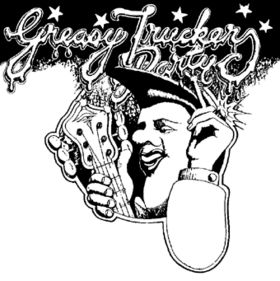
Greasy Truckers Party is a 1972 live album by various artists recorded at a February 1972 Greasy Truckers concert at the Roundhouse in London. The concert featured three bands, Man, Brinsley Schwarz, and Hawkwind, and musician Magic Michael. Originally a double vinyl album, in a limited edition of 20,000 and sold at just £1.50, it rapidly sold out, and became a collector's item.
In the world of British underground rock, the Greasy Truckers Party ... ... looms about as large as the Monterey International Pop Festival does in American rock lore; it wasn't the biggest gig ever played by the bands involved, but for reasons of exposure, and resulting word-of-mouth, and the excerpted live album that followed, it came to define what they were capable of.
Del Dettmar is an English musician, best known as synthesizer and keyboard player with English space rock band Hawkwind from 1971 to 1974.


















